Yummy!
_____________________
"Gambling footprint expanding in Florida under Gov. Rick Scott"
TALLAHASSEE — Days after a judge ruled last month that the barrel races held at a fledgling North Florida racino were not a legitimate parimutuel sport, state regulators crafted a license, the first of its kind, to allow "flag-drop" races to replace them.
In the past two years, the same regulators have allowed slot machine operators to run electronic roulette and craps games in Miami-Dade and Broward counties, allowed a dormant jai alai permit to be used to expand the number of slot machines at Magic City Casino, and allowed Tampa Bay Downs and Gulfstream racetrack in Hallandale Beach to run a one-time race in June so they could offer thoroughbred races via simulcast year-round.
These are just a handful of decisions by state regulators that have effectively expanded the gambling footprint in Florida under Gov. Rick Scott.
"There are a couple of clever lawyers out there and we're seeing a lot of strange decisions,'' Kent Stirling, executive director of the Florida Horsemen's Benevolent and Protective Association, told the Times/Herald. "If the law doesn't specifically say no, the answer from the department seems to be, always, yes."
The rulings have not gone without notice by top legislative leaders, who ordered up a comprehensive study of gambling in Florida. They say they want the debate to include the loophole-driven expansion of gambling, as well as a discussion about whether to authorize destination resort casinos being pushed by the world's gambling giants.
Today, legislators will receive the first of a two-part, $388,000 study from Spectrum Gaming Group, a New Jersey-based expert in gambling analysis. The second part will come in October, and legislators expect to recommend changes in March that could include whether to approve destination gambling.
"It behooves the Legislature to walk through all the statutes very deliberately with the goal of possibly rewriting those statutes to add clarification,'' said Sen. Garrett Richter, R-Naples, chairman of the Senate Gaming Committee that will conduct the review next session.
Sen. John Thrasher, R-St. Augustine, a veteran of the gambling law fight who once lobbied on behalf of the Jacksonville greyhound track, believes the Legislature's failure to reform its gambling laws has led to the inadvertent expansion of gambling.
"There are people who are looking at loopholes and these things expand gambling,'' he said. "I'm for closing loopholes. I'm not for expanding gambling in Florida.''
Lawyers at the Florida Department of Business and Professional Regulation's Division of Pari-Mutuel Wagering wouldn't comment Friday when asked about the pattern of rulings.
"DBPR is a regulatory agency that implements the laws created by the Legislature,'' said Ronnie Whitaker, DBPR chief of staff.
A draft of the first part of the Spectrum report suggests that "the overall financial trend for Florida parimutuels has been on a steady downward spiral." But if the Legislature continues to refrain from putting together a comprehensive gambling plan, the report warns there will be consequences.
"Based on our research and experience in Florida and elsewhere, gaming will evolve in Florida whether or not the Florida Legislature develops a plan and puts that plan into action,'' the draft report concludes. "Absent any plan, however, that evolution would be haphazard and would be far less likely to address or advance any public-policy goals."
The current tangle of regulations shows how haphazard things are.
Last year, the state allowed slot machine operators to run electronic games that mimic live roulette and craps games in Miami-Dade and Broward. The shift raises questions about whether the casino look-a-likes violate the gaming compact that gives the Seminole Tribe exclusive rights to operate casino-style table games in Florida.
John Lockwood, a lawyer working for Magic City Casino, used a loophole in the law regulating jai alai to allow the casino to get more slot machines.
Marc Dunbar and David Romanik, lawyers and part owners in a Gretna racetrack, persuaded regulators twice to allow them to bring alternative quarter horse racing to the track despite vigorous opposition from the quarter horse industry.
Dunbar is currently asking the state to convert Gulfstream Racetrack's unused quarter horse permit to property the company owns in Miami so it can expand its slot machines operations there.
"My job for my client is to pursue their agenda, and obviously I have a group of clients that are involved in the gambling industry that are pushing the envelope,'' Dunbar said.
As each change approved by regulators affects one sector of the highly competitive parimutuel market, another sector complains. The result: an avalanche of 21 lawsuits pending against the division.
On Friday, Calder Race Course's lawyers and Florida horse breeders and owners appeared before regulators warning that their decision to allow Tampa Bay Downs and Gulfstream to expand their simulcast schedule may increase competition — but at a steep cost to Florida's horse industry and its 6,000 breeders and owners.
"The governor is trying to bring new jobs to Florida, but this is something driving jobs away from Florida," Stirling said at the hearing.
The company said the decision has already cost Calder $1.7 million and predicted it would cost $7.4 million in the next year. Stirling warned it would also send hundreds of people in ancillary industries into the unemployment line and shift money from the live racing purses for Florida-bred horses to out-of-state racetracks.
"Without summer racing, there is no industry in Florida,'' said John Marshall, vice president of horse racing at Calder. "Two-year-olds need to race in the summer so they are ready to race when they are 3 years old,'' the prime year for champion horses.
Dunbar and Lockwood acknowledge they are hired to exploit the holes in Florida's gambling laws, but both suggest legislators should consider more comprehensive regulation, such as a gaming commission, similar to those in most major gaming states.
"You cannot legislate every realm of possibility in gaming law,'' Lockwood said. "Everybody is creative. They're looking for a work-around."
Dunbar said legislators are likely to resist change as they always have unless the governor steps up and sets the parameters of the debate, as former Gov. Jeb Bush did a decade ago.
"Until that happens, we will not get the comprehensive reform that we need,'' he said. "The real heavy is the threat of the veto pen. The industry is desperate right now and we will actually help them constrict gambling — provided there are relief points."
Mary Ellen Klas, Times/Herald Tallahassee Bureau
A blog for lovers of the printed word (novels, short stories, poems--the Ing so to speak), popular film, politics, and casinos (the Bling).
Friday, July 12, 2013
Subscribe to:
Post Comments (Atom)
Lipshitz 6

Reading T Cooper for Christmas
Click Here to Purchase Lipshitz 6
Punk Blood

Jay Marvin
Click Here to Purchase Punk Blood
Breath, Eyes, Memory

Anonymous Rex
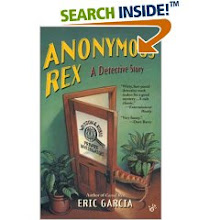
Reading Eric Garcia for Christmas
Click Here to Purchase Anonymous Rex
Vinegar Hill
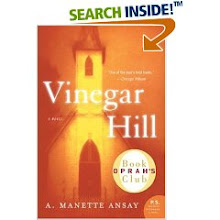
Reading A. Manette Ansay for Christmas
Click Here to Purchase Vinegar Hill
Nicotine Dreams

Reading Katie Cunningham for Christmas
Click Here to Purchase Nicotine Dreams
Junot Diaz
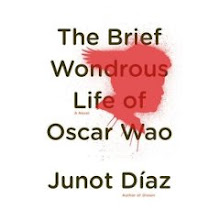
Pulitzer Prize Winner!!!
Click Here to Purchase The Brief Wondrous Life of Oscar Wao
Edwige Danticat

New Year's Reading
Click Here to Purchase Brother I"m Dying
Greed
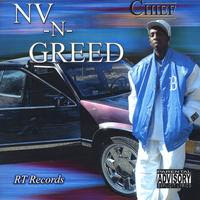
This Brother Is Scary Good
Sweet Music
One More Chance
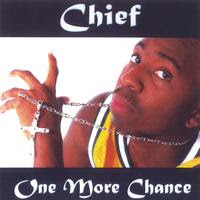
The genius Is At It Again/The Rapper CHIEF aka Sherwin Allen
Sandrine's Letter
Check out Sandrine's Letter To Tomorrow. You will like it, I insist.
Sandrine's Link
Cool Sites
- Akashic Books
- All or Nothing (My Other Blog)
- Asili The Journal
- Best Gamblling News Site
- Black Star Review
- Book Remarks
- Booktour.com
- Carolina Wren Press
- Click Here for Some Pretty Good Writing Contests
- Dedra Johnson
- Enrico Theoc
- Felicia Luna Lemus
- Florida Book Review
- Foreword Magazine
- Gambling Is Linked to Suicide
- Gambling Is Not Linked to Suicide
- Gaming Law Review
- Gene Durnell's The Thinking Journalist
- Gene Durnell's The Thinking Journalist
- Geoffrey Philp's Blog
- Get Chief's CDs on CD Baby
- Getting Past Gambling
- Gonzalo Barr's Blog
- Good Reads
- Hallema's Homepage
- Help With Gambling Addiction
- Jeremy Shipp's Website
- John Dufresne's Blog
- Leonard Nash Homepage
- Links to Seminole Casinos in Florida
- Martha Frankel's Homepage
- Michael A. Gonzales
- Miss Snark/ An Agent Gives Great Publishing Advice
- More Addiction Help
- No Gambling.com
- Pat MacEnulty
- ScrewIowa.com
- St. Louis Rams, The Greatest Show on Turf
- Suicide reference library
- T Cooper
- University of Florida
- Vicki Hendricks
- Walter Jacobs's Blog
- Writers Who Read
- Writing with Celia

All or Nothing

Editorial Reviews of All or Nothing
New York Times--". . . a cartographer of autodegradation . . . Like Dostoyevsky, Allen colorfully evokes the gambling milieu — the chained (mis)fortunes of the players, their vanities and grotesqueries, their quasi-philosophical ruminations on chance. Like Burroughs, he is a dispassionate chronicler of the addict’s daily ritual, neither glorifying nor vilifying the matter at hand."
Florida Book Review--". . . Allen examines the flaming abyss compulsive gambling burns in its victims’ guts, self-esteem and bank accounts, the desperate, myopic immediacy it incites, the self-destructive need it feeds on, the families and relationships it destroys. For with gamblers, it really is all or nothing. Usually nothing. Take it from a reviewer who’s been there. Allen is right on the money here."
Foreword Magazine--"Not shame, not assault, not even murder is enough reason to stop. Allen’s second novel, All or Nothing, is funny, relentless, haunting, and highly readable. P’s inner dialogues illuminate the grubby tragedy of addiction, and his actions speak for the train wreck that is gambling."
Library Journal--"Told without preaching or moralizing, the facts of P's life express volumes on the destructive power of gambling. This is strongly recommended and deserves a wide audience; an excellent choice for book discussion groups."—Lisa Rohrbaugh, East Palestine Memorial P.L., OH
LEXIS-NEXIS--"By day, P drives a school bus in Miami. But his vocation? He's a gambler who craves every opportunity to steal a few hours to play the numbers, the lottery, at the Indian casinos. Allen has a narrative voice as compelling as feeding the slots is to P." Betsy Willeford is a Miami-based freelance book reviewer. November 4, 2007
Publisher’s Weekly--"Allen’s dark and insightful novel depicts narrator P’s sobering descent into his gambling addiction . . . The well-written novel takes the reader on a chaotic ride as P chases, finds and loses fast, easy money. Allen (Churchboys and Other Sinners) reveals how addiction annihilates its victims and shows that winning isn’t always so different from losing."
Kirkus Review--"We gamble to gamble. We play to play. We don't play to win." Right there, P, desperado narrator of this crash-'n'-burn novella, sums up the madness. A black man in Miami, P has graduated from youthful nonchalance (a '79 Buick Electra 225) to married-with-a-kid pseudo-stability, driving a school bus in the shadow of the Biltmore. He lives large enough to afford two wide-screen TVs, but the wife wants more. Or so he rationalizes, as he hits the open-all-night Indian casinos, "controlling" his jones with a daily ATM maximum of $1,000. Low enough to rob the family piggy bank for slot-machine fodder, he sinks yet further, praying that his allergic 11-year-old eat forbidden strawberries—which will send him into a coma, from which he'll emerge with the winning formula for Cash 3 (the kid's supposedly psychic when he's sick). All street smarts and inside skinny, the book gives readers a contact high that zooms to full rush when P scores $160,000 on one lucky machine ("God is the God of Ping-ping," he exults, as the coins flood out). The loot's enough to make the small-timer turn pro, as he heads, flush, to Vegas to cash in. But in Sin City, karmic payback awaits. Swanky hookers, underworld "professors" deeply schooled in sure-fire systems to beat the house, manic trips to the CashMyCheck store for funds to fuel the ferocious need—Allen's brilliant at conveying the hothouse atmosphere of hell-bent gaming. Fun time in the Inferno.
Florida Book Review--". . . Allen examines the flaming abyss compulsive gambling burns in its victims’ guts, self-esteem and bank accounts, the desperate, myopic immediacy it incites, the self-destructive need it feeds on, the families and relationships it destroys. For with gamblers, it really is all or nothing. Usually nothing. Take it from a reviewer who’s been there. Allen is right on the money here."
Foreword Magazine--"Not shame, not assault, not even murder is enough reason to stop. Allen’s second novel, All or Nothing, is funny, relentless, haunting, and highly readable. P’s inner dialogues illuminate the grubby tragedy of addiction, and his actions speak for the train wreck that is gambling."
Library Journal--"Told without preaching or moralizing, the facts of P's life express volumes on the destructive power of gambling. This is strongly recommended and deserves a wide audience; an excellent choice for book discussion groups."—Lisa Rohrbaugh, East Palestine Memorial P.L., OH
LEXIS-NEXIS--"By day, P drives a school bus in Miami. But his vocation? He's a gambler who craves every opportunity to steal a few hours to play the numbers, the lottery, at the Indian casinos. Allen has a narrative voice as compelling as feeding the slots is to P." Betsy Willeford is a Miami-based freelance book reviewer. November 4, 2007
Publisher’s Weekly--"Allen’s dark and insightful novel depicts narrator P’s sobering descent into his gambling addiction . . . The well-written novel takes the reader on a chaotic ride as P chases, finds and loses fast, easy money. Allen (Churchboys and Other Sinners) reveals how addiction annihilates its victims and shows that winning isn’t always so different from losing."
Kirkus Review--"We gamble to gamble. We play to play. We don't play to win." Right there, P, desperado narrator of this crash-'n'-burn novella, sums up the madness. A black man in Miami, P has graduated from youthful nonchalance (a '79 Buick Electra 225) to married-with-a-kid pseudo-stability, driving a school bus in the shadow of the Biltmore. He lives large enough to afford two wide-screen TVs, but the wife wants more. Or so he rationalizes, as he hits the open-all-night Indian casinos, "controlling" his jones with a daily ATM maximum of $1,000. Low enough to rob the family piggy bank for slot-machine fodder, he sinks yet further, praying that his allergic 11-year-old eat forbidden strawberries—which will send him into a coma, from which he'll emerge with the winning formula for Cash 3 (the kid's supposedly psychic when he's sick). All street smarts and inside skinny, the book gives readers a contact high that zooms to full rush when P scores $160,000 on one lucky machine ("God is the God of Ping-ping," he exults, as the coins flood out). The loot's enough to make the small-timer turn pro, as he heads, flush, to Vegas to cash in. But in Sin City, karmic payback awaits. Swanky hookers, underworld "professors" deeply schooled in sure-fire systems to beat the house, manic trips to the CashMyCheck store for funds to fuel the ferocious need—Allen's brilliant at conveying the hothouse atmosphere of hell-bent gaming. Fun time in the Inferno.
At Books and Books
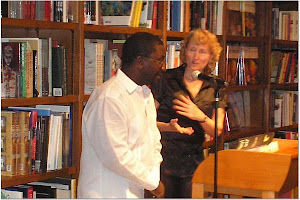
Me And Vicki at Our Reading
Bio
Preston L. Allen is the recipient of a State of Florida Individual Artist Fellowship in Literature and the Sonja H. Stone Prize in Fiction for his short story collection Churchboys and Other Sinners (Carolina Wren Press 2003). His works have appeared in numerous publications including The Seattle Review, The Crab Orchard Review, Asili, Drum Voices, and Gulfstream Magazine; and he has been anthologized in Here We Are: An Anthology of South Florida Writers, Brown Sugar: A Collection of Erotic Black Fiction, Miami Noir, and the forthcoming Las Vegas Noir. His fourth novel, All Or Nothing, chronicles the life of a small-time gambler who finally hits it big. Preston Allen teaches English and Creative Writing in Miami, Florida.
No comments:
Post a Comment